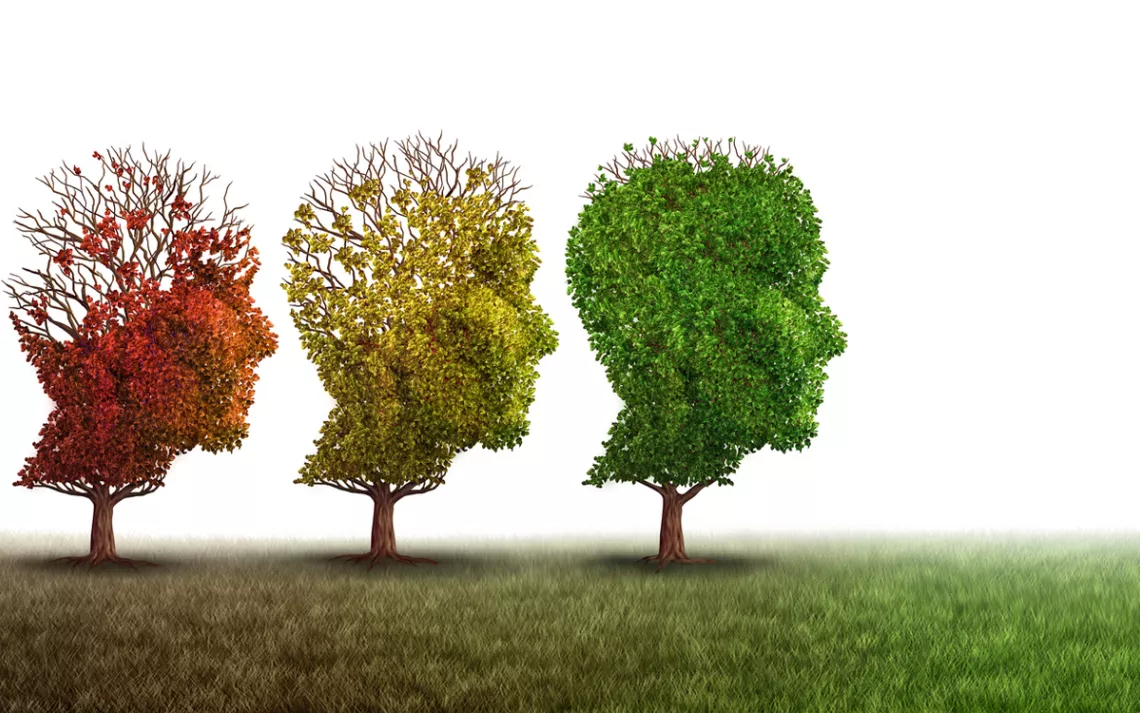ENVIRONMENT EXPLAINED
Can Getting Outside Really Improve Your Mental Wellness?
For Mental Health Awareness Month, we set out to find answers
Are you staying in this weekend, watching Netflix with a choice comfort food on hand? Consider also making time to get outdoors. Studies show that getting outside is clinically proven to keep your mind healthy and relaxed. In fact, doctors are among the most strident advocates of the good old-fashioned nature prescription.
In honor of Mental Health Awareness Month, we looked into studies that demonstrate the real connection between time spent in the great outdoors and mental well-being. Here are some specific ways to channel it to your benefit.
If you’re battling anxiety and/or depression:
Studies show that the more you hole up in your room, the lower your spirits will sink. For one study, researchers asked 20 individuals suffering from major depressive disorders to go on a nearby hour-long walk—some in natural settings and some in urban environments. Not surprisingly, the nature-walking group reported significant upticks in overall mood, and in memory span, too.
Greener living environments also have a positive impact on people who’ve endured recent stressful experiences. This study found that green spaces function as a type of “buffer” from stressful life events, with the power to help restore one’s mental wellness.
If you’re seeking another reason to get more active:
It’s never too late to pedal your way into a new commuting routine or weekend hobby. According to three researchers who surveyed 123 employees in the very-bikeable city of Montreal, cycling to work can indeed alleviate those Monday blues. For their study, they recorded the moods and stress levels of participants—who biked, drove, or took public transportation to work—throughout the day. Not only did the cyclist-commuters show lower stress levels than other commuters, but also those positive effects lasted throughout the workday. If you’re still hesitant to make a bicycle your primary mode of transport, here are some podcasts that might get you in the mood: The Cycling Podcast, Roam Rydes, Tales on Two Wheels, and The Bike Karma Bicycle Podcast.
Of course, a bicycle isn’t a prerequisite for mental well-being. According to this study, any type of exercise in nature has the power to boost one’s mood. After its researchers had a group of men and women participate in a range of fitness regimens in various natural settings, participants unilaterally reported improvements in mood and self-esteem. It’s worth mentioning that those who came into the experiment with diagnosed mental illnesses experienced the most marked increases in self-esteem.
If you’re planning a move:
It can be helpful to consider properties in a greener neighborhood. For this European study, researchers spent three years tracking the mental health of people who’d recently relocated to areas with plenty of green space, as compared to those who moved to less foliaged urban areas. Results showed that the former group “had significantly better mental health in all three post-move years,” and that those who moved to less green areas experienced significantly worse mental health in the years following their relocation.
This American study also shows living in close proximity to green spaces to be associated with significantly lower levels of symptomatology for depression, anxiety, and stress. In short, you very well might be happier living in a place where green spaces are easily accessible.
If you don’t have enough time to trek to a far-flung wild place:
Those green spots close to home and work also count! As long as they’re safe and accessible, seeking refuge in neighborhood parks, soccer fields, city trails, and even friends’ backyards can do much to boost mental wellness. Moreover, it’s OK if you’re not living in an area that’s chock-full of parks and trails. Research shows that quality trumps quantity—just one good park can have positive benefits for the surrounding community. Humans, after all, are social by nature, and having a green space in which to unwind and strike up friendships can do wonders for one’s sense of well-being.
 The Magazine of The Sierra Club
The Magazine of The Sierra Club




